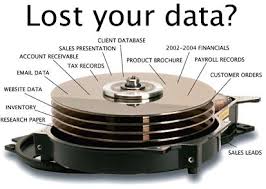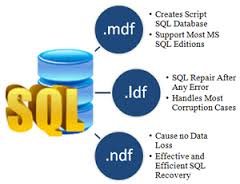MS SqlServer Data(base) Recovery
Database Recovery
.
Data Recovery
Backup Recovery
Data Loss Prevention
Database Lifecycle Management
Data Matters
Data! Data! Data! I can’t make bricks without clay!
Sir Arthur Conan Doyle
Data is a precious thing and will last longer than the systems themselves. Tim Berners-Lee
Data(base) Recovery
1) MS SQL Database Recovery (Recovery of Microsoft SQL Mdf file)
It can be possible that your Database gets damaged because of an attack or a virus, or by malfunctioning Hard- or Software. We can help to recover your important corrupted or damaged data by Restoring damaged Pages, DAC connections or by third party tools.
The recovery includes:
- Database schema (Tables, Triggers, Keys, ...)
- Database objects (Functions, Stored Procedures, ...)
- Your important Data
2) Backup Recovery
Besides recovery of data from your corrupted Mdf file, we can also recover data from Corupted Backup Files (Full Backup), or we can try to read the missing transactions from the existing Transaction Log file.
3) Data Loss Prevention
Even more important than recovering data (which is an emergency procedure which costs valuable time of impacted people) is preventing your environment from Data Loss. We can help you to set up a consistant DRP (Disaster Recovery Procedure) with events, alerts, consistancy checks, ...
In this way you get informed when the problems are still small so you have more time to solve it, users or not or less impacted, and data loss is minimized.
4) Database Lifecycle Management (DLM)
Besides your production Database environment and Data, you might also have a Development Team that is continuously improving your application(s). We can help you by designing and implementing a DLM chain in your company.
Q: Why would you implement DLM in your Development track?
A: DLM helps you to version your database (model / code) changes, by doing this you:
- lower the risk to "Recurrent problems"
- align your SQLServer model and objects with other application code
- have more control about releases and environments
- can improve your testing
- have more visibility on your database model and the impact of the cnanges
- are able to align better with DevOpps, DBA's, ...






